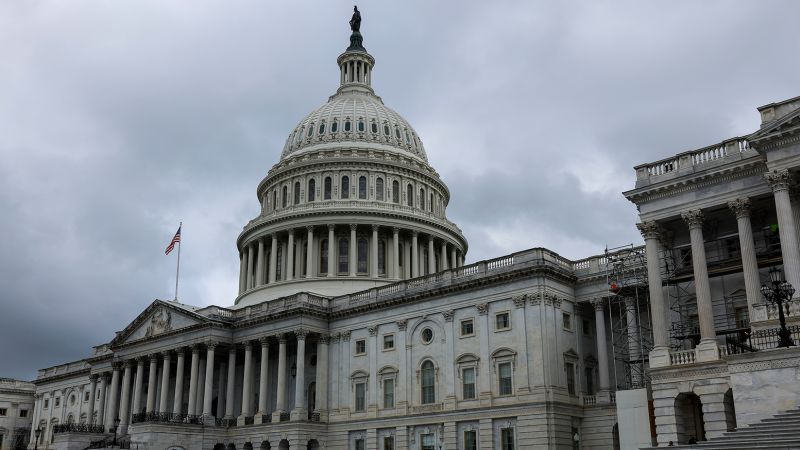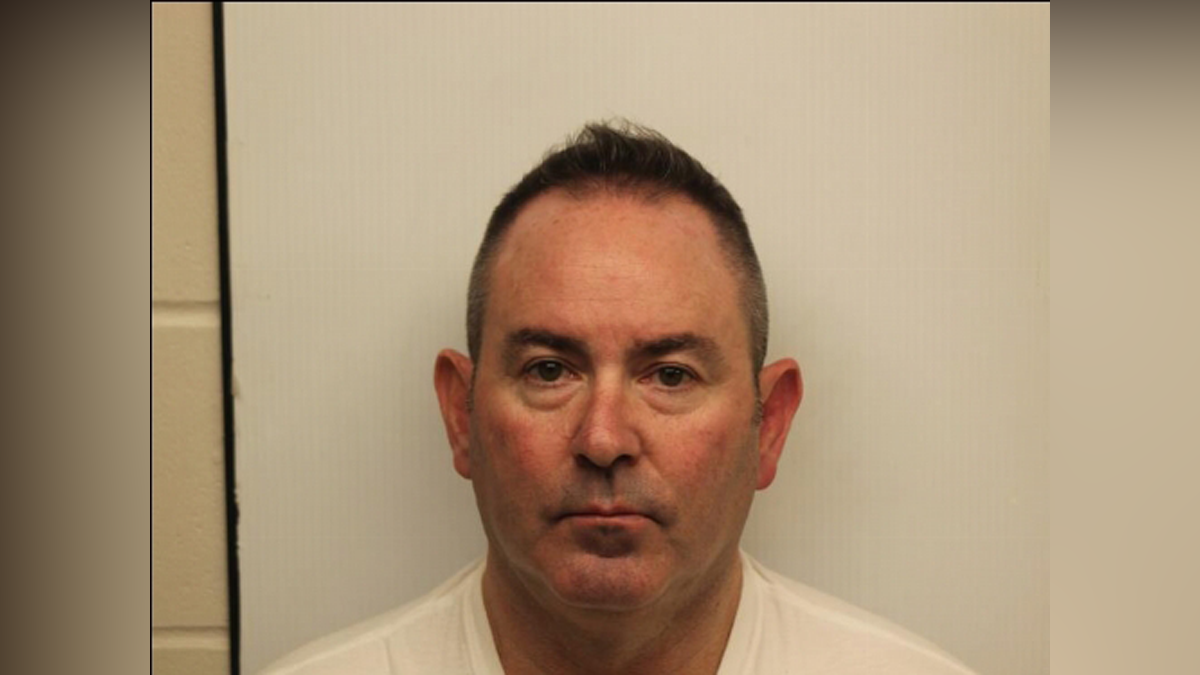CNN
—
President Joe Biden and his Oval Office predecessor, Donald Trump, are about to wage the most direct showdown yet of their possible rematch as far-right House Republicans drive the nation to the brink of a government shutdown.
Intense activity from Washington to swing-state Michigan during this pivotal week will recall how extremism rocked political institutions during the ex-president’s turbulent term and will test Biden’s capacity to again exploit the chaos to empower his reelection bid.b
The government could run out of money at midnight Saturday as House Speaker Kevin McCarthy struggles to control a burn-it-down faction in his majority. The rebels are holding funding hostage to their demands for huge spending cuts that they have no power to force the Democratic-run Senate and White House to accept.
Trump, seeking to sow dysfunction on Biden’s watch and advance his political goals as the GOP front-runner for 2024, is goading his loyalists to shut Washington down.
Hundreds of miles away in Michigan, Biden and Trump will step up their putative general election campaign in an early skirmish over blue-collar Midwestern votes against the backdrop of a strike paralyzing the iconic American auto industry. The stoppage exposed a fault line between Biden’s long-time support for union workers seeking pay rises and his plans for an electric vehicle revolution that could transform the industry. Trump, who opposes plans for a low carbon economy to fight climate change, initiated the showdown by scheduling a visit to the striking workers on Wednesday – the same night other GOP hopefuls will be debating. In a radio ad, the ex-president’s team claims he always stood for auto workers even as the United Auto Workers union warns a second Trump term would be a disaster for organized labor.
The Biden campaign initially blasted Trump’s trip as a “self-serving photo op.” But Biden then announced he would travel to Michigan a day before Trump for a historic walk along the picket line. The move reflects a show of political dexterity from the Biden team after days of unflattering coverage over the president’s age and it comes as new polls Sunday showed him locked in a theoretical dead heat match-up with Trump in November 2024 amid voter dissatisfaction over his management of the economy. Michigan – which Trump won in 2016 but Biden pulled back into the Democratic column in 2020 – will again be a vital general election state.
The drama in the Wolverine State will overshadow the second Republican debate, which Trump’s massive polling lead and refusal to attend has turned into a squabble for a distant second place in the race. Former South Carolina Gov. Nikki Haley will try to build on momentum coming out of the first debate in Wisconsin last month, while Florida Gov. Ron DeSantis is under pressure to revive a fast-falling campaign. The event is at the Ronald Reagan Presidential Library in California – an incongruous choice since much of the GOP has left behind the legacy of the president who won the Cold War against Soviet totalitarianism and has now largely adopted Trump’s authoritarian instincts.
Those tendencies are on full display in the House GOP, which is planning to hold the first hearing in their impeachment inquiry into Biden on Thursday, even while threatening a government shutdown at the end of the week. The juxtaposition is likely to inflate claims that the GOP, which has yet to show any evidence that Biden is guilty of bribery, treason or high crimes and other misdemeanors, is using impeachment to try to damage the president ahead of the election and to mitigate the historic stain of Trump’s double impeachments and quadruple criminal indictments. Still, the process could exacerbate public skepticism over Hunter Biden’s alleged influence peddling, which has created an impression of a conflict of interest, even if the GOP is yet to prove that the president profited personally from the transactions.
And Democrats now have another ethical headache, after a stunning corruption indictment against New Jersey Sen. Robert Menendez, the chairman of the Senate Foreign Relations Committee, last week gave the GOP more ammunition for claims that alleged illegalities go far wider than Trump.
The showdown in the House shows that the deepening Republican civil war risks making the country ungovernable. Indeed, that may be a desirable outcome for pro-Trump Republicans who abhor what they see as an overpowering administrative state or who seek dysfunction and economic turmoil that could damage Biden’s presidency and aid Trump’s return to power.
Even though much of the government will grind to a halt at midnight on Saturday unless Congress passes legislation to fund it, McCarthy sent his members home until Tuesday after a week of legislative mayhem exposed the weakness of his speakership as never before. The California Republican has been trying to pass a temporary funding bill known as a continuing resolution to keep the government open to allow time for a more permanent funding fix. But hardliners in his conference, including debt hawks and others who are trying to topple the speaker, are refusing to comply. They’re demanding massive spending cuts on top of those included in a deal that McCarthy cut with Biden earlier in the year to raise the government’s borrowing limit, when a disastrous debt default loomed. Others want to end US support for Ukraine’s war for survival against Russia. Not only has McCarthy not advanced a temporary spending fix, he twice failed to pass a defense spending bill last week that is usually an easy lift.
One way out of the crisis would be a coalition between moderate Republicans, who fear a shutdown could cost them their seats and the GOP majority next year, and Democrats to pass a temporary spending bill. But GOP hardliners are threatening to vote to oust McCarthy if he allows such a scenario. “That would be something I would look strongly at, ma’am, if we do away with our duty that we said we’re going to do,” Tennessee Rep. Tim Burchett told Dana Bash on CNN’s “State of the Union.”
McCarthy has responded to the breakdown by adopting a spaghetti-against-the-wall approach, trying to revive a temporary bill and even seeking to create momentum by bringing up several of the critical year-end spending bills funding various departments that normally take months of intricate negotiating to finalize. But even if he did enact some of those major measures, he’d still not avert a shutdown. And even a short-term fix that he could pass with the GOP’s tiny majority would likely be dead upon arrival in the Senate and the White House.
The speaker, who has improbably managed to keep his conference together at several crisis points earlier this year, is getting increasingly frazzled. He slammed the far-right faction of his party last week as “wanting to burn the place down.” Rejectionist members of the GOP conference – from deeply conservative districts where primary contests are the only elections that matter – are seeking to neuter government by enacting far-reaching spending cuts. Many are undoubtably acting on the wishes of their constituents. But given that Democrats control the Senate and the White House, they have failed to build a coalition in Congress, or even in their own party, for such draconian action.
However, the tiny majority voters handed McCarthy in last year’s midterms – he can only lose four votes and still pass a bill along party lines – gives even small groups of members great leverage. With their flouting of the foundational US political principles of majority rule and compromise, the rebels epitomize the GOP in the era of Trump, who rejected voters’ will by striving to stay in power after losing the 2020 election and promises “retribution” if he wins back the White House.
With the political heat over a potential shutdown rising, Transportation Secretary Pete Buttigieg toured Sunday political talk shows to pressure Republicans. “The American people don’t want a shutdown. From what I can tell, the Senate is ready to go. The administration is ready to go. House Republicans need to come to their senses and keep the government running,” Buttigieg said on “State of the Union.”
The White House this week is planning to highlight how a shutdown would affect Americans, shining a light on a different set of programs each day, a White House official said.
McCarthy has warned his party that Republicans tend to be punished by voters for government shutdowns. But Trump, who is facing four criminal trials and wields great influence over McCarthy and his conference, is cheering on a shutdown – whatever the social, human and economic chaos. He wrote on his Truth Social network that the shutdown was the “last chance to defund these political prosecutions against me and other Patriots. They failed on the debt limit, but they must not fail now. Use the power of the purse and defend the Country!”
Despite the extraordinary possibility that Trump could be a convicted felon by Election Day, his rivals for the GOP nomination have failed to make a dent in his standing among base voters, who have bought into his narrative that his legal troubles are political persecution, let alone House Republicans who take their cues from him. Wednesday’s debate will, however, offer a fresh chance for other candidates to emerge as the leading alternative to the former president.























/cdn.vox-cdn.com/uploads/chorus_asset/file/25822586/STK169_ZUCKERBERG_MAGA_STKS491_CVIRGINIA_A.jpg)

/cdn.vox-cdn.com/uploads/chorus_asset/file/25821992/videoframe_720397.png)




